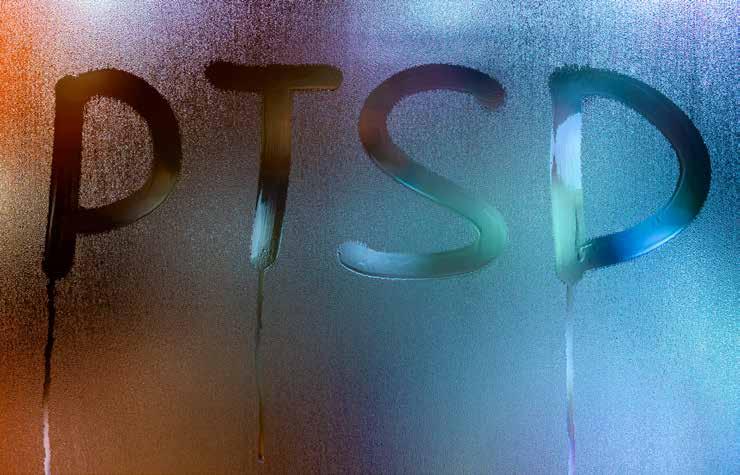
2 minute read
Intersections of Psychological Health and Brain Injury in the Context of Intimate Partner Violence
Brain injuries, including traumatic brain injuries (TBI) and anoxic brain injuries (from strangulation), are among the most dangerous injuries faced by women subjected to intimate partner violence (IPV), as reviewed by Valera.1 Of course, brain injuries are not the only ‘invisible’ wounds of IPV. Not surprisingly, experiences of psychological, sexual, and physical violence are strongly associated with psychological health conditions. Effective treatment of brain injuries among women who experience IPV requires attention to posttraumatic stress disorder (PTSD) and common co-occurring psychological health conditions. In this article we (1) discuss research on brain injuries in the context of co-occurring PTSD, depression, and substance use among women who experience IPV and (2) highlight unique clinical considerations for treating psychological health conditions in the context of IPV and brain injury.
IPV-Related Brain Injury and Comorbid PTSD and Depression
Although IPV-related brain injuries have received sustained attention in recent years, three decades of research provide indisputable evidence that physical, sexual, and psychological forms of IPV can cause and exacerbate PTSD and other mental health conditions. PTSD and depression are among the most prevalent and debilitating consequences of IPV.2 Findings from healthcare and populationbased samples indicate that women who experience IPV are 2 to 3 times more likely than those without IPV to have a diagnosis of PTSD and/or depression.3-5
Women who experience both brain injuries and mental health problems stemming from IPV are likely to face particularly deleterious health effects. While each type of exposure alone is robustly associated with poorer health and functioning, together they may have a synergistic effect in contributing to an array of adverse health outcomes for individuals who experience IPV. Iverson et al.6 examined the associations between IPV-related brain injury and PTSD symptomatology among 224 women with lifetime IPV, of whom 28% screened positive for IPV-related brain injury. Women with IPV-related brain injury with persistent neurological symptoms (e.g., ongoing memory problems, balance problems or dizziness, and headaches) were 6 times more likely than women without a history of IPV-related brain injury to have probable PTSD, adjusting for race, income, and past-year IPV experiences. An 18-month follow-up study of women from this same sample demonstrated that when controlling for the significant effects of baseline PTSD, those who experienced IPV-related TBI with persistent neurological symptoms at baseline reported significantly higher levels of depression, insomnia, and somatic symptoms 18-months later compared to women who experienced probable IPV-related brain injury without persistent neurological symptoms at baseline.7 These findings suggest that both the persistent neurological symptoms caused by IPV-related brain injury and PTSD are uniquely associated with worse psychological health over time.
Although PTSD is common among women who experience IPVrelated brain injuries, comprehensive research on both brain injuries and PTSD in IPV populations remains sparse. To help fill this gap, Galovski et al.8 recently conducted the most comprehensive assessment of PTSD and brain injury to date, which included clinician-administered interviews of trauma exposure, brain injuries, and psychological diagnoses (along with brain imaging and blood assays). This community sample of 51 women who experienced lifetime IPV and screened positive for PTSD reported high rates of trauma exposure across the lifespan, particularly interpersonal violence (e.g., 71% experienced childhood sexual abuse, 47% experienced childhood physical abuse, and 45% experienced adult sexual assault from a non-intimate partner). As for psychological health, 80% met diagnostic criteria for PTSD, 22% met criteria for major depression, and 18% met criteria for at least one substance use disorder.








